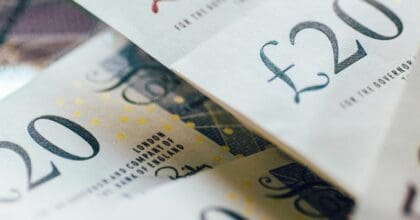As the federal government in Germany introduces a temporary reduction in the standard rate of VAT to 16% (down from 19%) and also cuts the sales tax on essential goods to 5% (down from 7%) on 1st July, our German analysts examine the impact these changes will have on the beauty, technology and leisure sectors.
Gwen Osserman, Research Analyst – Beauty & Personal Care

BPC brands have been relying heavily on special offers to encourage shoppers to spend online, however spending levels post-lockdown have not resumed full capacity. This can in part be attributed to the low penetration of online BPC sales in Germany in general despite significant growth throughout the crisis. Drugstores had an upper hand as an essential store and the sales tax cut will see them get even further ahead.
Department stores and the prestige beauty sector have been hit hardest by store closures and heightened price sensitivity towards high discretionary categories, such as colour cosmetics and fragrances. Unlike when they discount, companies don’t lose revenue when VAT is cut – as the government shoulders the burden instead.
Mintel predicts German BPC consumers will need another quarter to restore confidence. In the meantime this stimulus measure could trigger an income effect in which lower prices free up income to spend on additional products.
Home-fatigue in Germany is due to persist, leading self-care practices like beauty rituals to become an act of self-preservation, not indulgence. The standard VAT reduction may not be strong enough to tip the scale in BPC, where spending continues to be muted, however it offers BPC companies a chance to regroup and focus on mid-term strategies as the German economy approaches a recession and consumers tighten their belts.
Jan Urbanek, Research Analyst – Consumer Technology

Even though it is likely that tech companies and retailers will pass the VAT cut of 3% directly to consumers, the discount will primarily appeal to those who already have a purchase planned. While it could trigger the desire for a bargain hunt in some consumers, with a lot of discounts happening in several industries such as clothes, cars but also tech (eg Samsung’s Galaxy Week marketed to gift the 19% VAT) that are more generous than the VAT cut, and with big discount events like Black Friday being key for this sector, consumers will ultimately perceive the government’s VAT discount as less attractive. During the Christmas season, the VAT cut will prove more tempting for consumers, given the impending end of this governmental incentive on 31 December and the resulting higher prices.
Especially for smartphones, where rising prices have been holding back consumers well before COVID-19, the small VAT discount is less likely to be enough to make a visible impact on demand. Samsung’s Galaxy Week in early June in cooperation with MediaMarkt and Saturn was therefore a well-needed move to keep consumers from delaying their purchase or from switching to increasingly appealing cheaper brands. More discounts to that extent or bundled offers will be needed if companies want to see sales jump back up again in the near future.
Even though online is the dominant channel for electrical goods purchasing, in-store remains a key component in the buying process. Especially for big-ticket items consumers want to see and experience the product physically before buying it. While the many lifted lockdown measures and reopening of public life will have a mellowing effect on the perceived threat of infection, a lot of Germans are still trying to limit time in-store, making price and income only one of the issues for the tech market. Noticeable discounts and special offers but also delivering a risk-free and enjoyable shopping experience will be key to revive the tech market.
Dr. Christina Wessels, Research Analyst – Household & Leisure

With the eased lockdown measures at the end of May, cultural and leisure centres were theoretically able to reopen in compliance with strict hygiene rules. While a few theatres such as the Frankfurter Schauspiel indeed reopened thanks to a pandemic-compatible implementation of their program, a large number of theatres have remained closed and more than a few have stayed ‘digitally exiled’.
The German government’s rescue package for the cultural sector and the therein included VAT cuts will only marginally show impact on the fact that many theatres simply won’t be able to reopen their doors by autumn 2020.
In Germany, the reduced tax rate of 7% in the culture and leisure sector is applied to tickets for theatres, orchestras, concerts, museums, cinemas, circuses and swimming facilities, while amusement parks fall under the regular VAT rate of 19%.
For many theatres, cinemas and concert halls, it is simply not profitable to open their doors due to the strict hygiene regulations in place and the minimal use of their visitor capacity due to the social distancing measures.
Although the Federal Statistical Office of Germany expects the leisure, entertainment and cultural industries to lower their prices at around 2.3% as a result of the VAT cuts, it will prove difficult to boost the German economy with the reduced VAT in the leisure sector. It is not only the continual closures of many leisure and cultural facilities or the cancellation of big cultural events such as the Ruhrtriennale in the Ruhr-area of Germany that are torpedoing the revival of the German economy.
Due to the additional bureaucratic effort, many theatres cannot guarantee a swift and unbureaucratic implementation of the government’s tax incentive, especially since many tickets have already been sold and ticket prices set for later this year. A refund for overpaid VAT is therefore associated with a high level of bureaucracy for many. This means that the cultural sector cannot simply pass the VAT reductions on to consumers. At the same time, the lack of consumer confidence among German consumers in the areas of leisure, entertainment and culture continues to pose a major challenge to the economy.
Before the COVID-19 pandemic, in 2018, German consumers spent on average 304 Euros on leisure, entertainment and culture, equalling 11% of their overall spending. At around 88 euros per month, the largest share was spent on leisure and cultural services.
Currently, only few consumers are willing to spend money on leisure activities: two out of five German consumers claim to reduce their spending on leisure and entertainment the next month, while a third of consumers cut their spending on non-essential items and services since the outbreak of COVID-19. Although the VAT cuts look like a plausible economic incentive at first sight, its appeal for the cultural and leisure sector fades at second glance. Ongoing closures, additional bureaucratic efforts and a low level of consumer spending obstruct the hoped-for boost for the German economy.
If you want to find out more about our Mintel Reports Germany, please contact your Account Manager or head to our Mintel Store to find the latest reports.







































